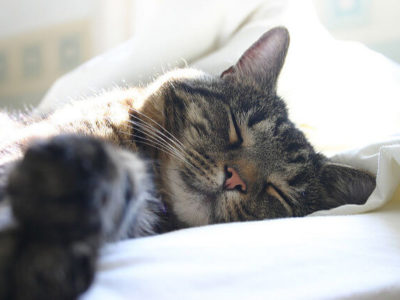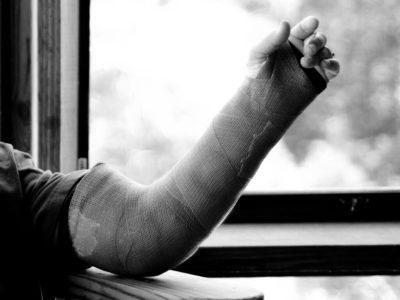Exhaustion feels like an uphill battle that not even the strongest espresso or the longest mid-afternoon nap can overcome. We trudge to classes across campus and pinch ourselves when we nod off in lectures. Yet, when our heads hit our pillows, all of our worries race through our brains with an astounding liveliness that we didn’t know we possessed. Is it really possible that the minute you hit the pillow, you forget how to fall asleep? Oh yes it is. Are you (literally) sick and tired for your everyday stressors interrupting your sweet sheep counting?
One major key to figuring how to to fall asleep is comfy wear. So try these tanks:


Practice these 10 tips on how to fall asleep before setting your morning alarm.
1. Avoid any stimulating food or medicine.

“You shouldn’t have any foods with caffeine after dinner, such as coffees, teas and chocolates. Even decaffeinated teas and coffees have a bit in caffeine in them and can keep you up if you’re caffeine-sensitive,” said psychotherapist Dr. Barbara Kennard, LCSW. So cool it with the Starbucks. You should also eat dinner more than an hour before your bedtime. Eating late causes your blood sugar to rise and crash while you sleep. According to Body Ecology, this heightens your cortisol levels, which diminishes melatonin production. Additionally, Kennard suggested making sure that you take medicine specifically for night-time use, such as Mucinex DM instead of Mucinex D, because some decongestants and other cold medicines can be stimulating as well.
2. Say goodbye to blue light
Blue light emitted from your technological devices is a huge contributor to sleep loss. “It interferes with your production of melatonin,” said Dr. Kennard. Of course, there’s no way you can avoid those nights where you scramble to finish that paper right before bed. One way to fix this? Download an app called f.lux on your phone or laptop to change the temperature of the light on the screens. According to the f.lux website, it makes the computer look like indoor lights at night and sunlight in the morning. “It’s also automatic and you can set when you want to turn it off and when you want to turn it on,” said University of Maryland graduate Christina Cortese.
3. Develop a routine
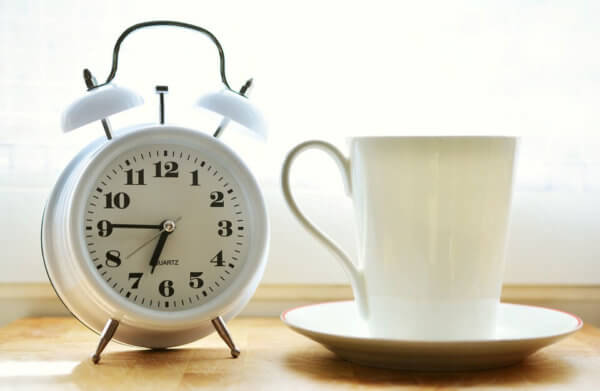
According to the National Sleep Foundation, you should go to bed and wake up at the same time every day. Your body works as a biological clock, and if you develop a day-to-day routine, you’ll have an easier time falling asleep and waking up the next day. “To get a good night’s sleep I would have to take the night off,” said James Madison University graduate and former RA Katrina Colquhoun. “People on my floor would keep me up a lot, but I also knew that I might have to get up for an emergency in the middle of the night.” So even if commotion from your roommate wakes you up, like the sound of her sniffles after watching a disappointing episode of Gilmore Girls: A Year in the Life, your early bedtime will have made up for that half hour of trying to fall asleep again.
4. Invest in eye masks and earplugs
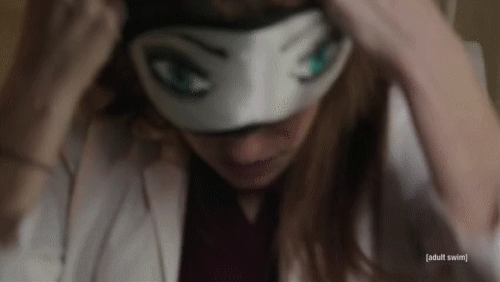
I personally swear by this one. I didn’t even use an eye mask until I got to college and found that 7 a.m. sunlight was unforgiving and my dorm room blinds were inadequate. However, after I started to use this handy bedtime accessory, I found that I could sleep hours longer than I normally do. In one study reported by the National Sleep Foundation, Chinese researchers examined the effects of eye masks and earplugs on test subjects by stimulating a sleep-disturbing ICU environment. They found that earplugs and eye masks resulted in more REM time, less arousal and elevated melatonin levels among their test subjects, which ultimately helped to promote sleep and improve hormone balance.
5. Take Care of Your Body

“Exercising helps you to fall asleep at night, but do not exercise right before bed,” said Dr. Kennard. “It is too stimulating for your body.” This is due to the fact that as your body prepares for sleep, your core temperature drops. Raising that temperature by exercising before bed interferes with your ability to fall asleep. According Dr. Michael Breus, AKA the Sleep Doctor, the time of day when you should specifically be active depends on your chronotype, or your own personal bio clock that controls your body’s rhythms. You can also try meditating in the afternoon or evening. Some universities, like University of Maryland, offer free group or one-on-one meditation sessions at their health centers. How relaxing does that sound?
6. Listen to the relaxing music or watch mild TV

Listening to “Despacito” on repeat or watching Game of Thrones before heading off to bed isn’t always a good idea. “If you think listening to music or watching TV before bed will ultimately keep you up, avoid it,” said Dr. Kennard. “But sometimes, it depends on what you are watching and listening to. If you’re listening to soothing music, for example, you may not be kept up. Again, it all comes down to the person and their sensitivity level.” If you like to listen to music at night but are in need of something more relaxing than your Spotify turn-up playlist, try transitioning to sleep with a sleeping music playlist on Spotify. You can even create your own playlist which will ease you into a deep sleep in no time. Same thing with TV—try something that won’t cause your heart to race, like Friends.
7. Prepare for the next day
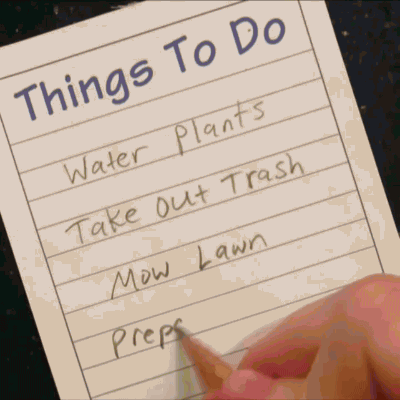
Do your worries about that speech you need to give in the morning interrupt your shut-eye? If so, eliminate those stressors at night by readying yourself for the coming day. “I’ll make sure my backpack is packed with the things I need for that day’s classes, and I’ll pick out my outfit, put my shower caddy in the bathroom and make a to-do list with specific times for when things need to get done,” said University of Maryland junior Jill Thomas. “That way, I can go to bed without feeling like I’m forgetting something.” That piece of mind that accompanies preparation will help distract you and allow you to sleep soundly, just like a baby.
8. Don’t expect alcohol to help you sleep better

Consuming a large amount of alcohol will make you pass out, but a common misconception is that drinking will actually help you sleep more efficiently. According to WedMD, alcohol reduces rapid eye movement (REM) sleep. REM sleep is essential for a good night’s sleep because it is a restorative to our brains and it allows us to dream. Interrupting this period causes daytime drowsiness and a lack of concentration. And according to Dr. Breus, drinking alcohol before falling asleep, or even using it regularly as a sleeping aid, can increase one’s chances of sleep talking, sleep walking and memory issues. If you ever think about drinking solely to help you pass out, think again before scaring off your roommate with your 2 a.m. sleep-driven gibberish.
9. Take quick power naps
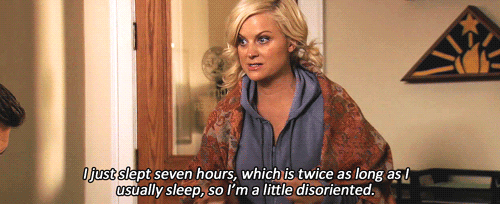
In college, naps are vital to our success as students. Without them, I doubt anyone would be able to muster up the energy to pull an all-nighter cramming for that statistics exam, or to spend a wild night out on the town. However, long naps too close to nighttime can actually be detrimental to your sleeping routine. “Don’t take long naps in the evening,” said Dr. Kennard. “30 to 40 minute power naps in the early afternoon are ideal.” Need to cram for those three finals that somehow all landed on the same day? Take power naps to give your brain a rest from studying. Power naps enhance your memory, motor skills, energy level and even your creativity, depending on how long you snooze.
10. Settle any issues with your roommate

If you have never shared a room with someone before, you may be surprised as to how disruptive someone else’s sleeping and studying habits may be. If you’re a light sleeper, their desk light, soft snores or even their odd 3 a.m. Netflix habits may keep you up. At the beginning of the school year, talk to your roommate about your sleep schedule and lay down some ground rules for what you both expect out of one another (go into the hallway to talk on the phone at night, no lights on past 11 p.m., listen to music or watch TV with headphones, etc.). If you find that they don’t abide by what you both agreed on, talk about it with them and suggest what they could do differently. Then ask them if you could do anything differently as well. “Some people don’t realize that they’re being bothersome,” said Dr. Kennard.
If you try all of these tips and find that you’re still sleep-deprived, try sleep medicine such over-the-counter melatonin or medicine prescribed by your doctor. You could also try seeking out a doctor at your university’s health center.
You’ll Need a Comfy Bed and Soothing Environment if You Want to Catch Those ZZZ’s.
1. A Snuggly Pillow
Jane Eyre Throw Pillow: $32.99
2. A Soft Duvet

Kitty Cone Duvet Cover: $89.99-$119.99
3. Eye Mask

Eye Mask: $9.99
4. A Blanket in case you get extra cold

Marble Blanket: $49.99

